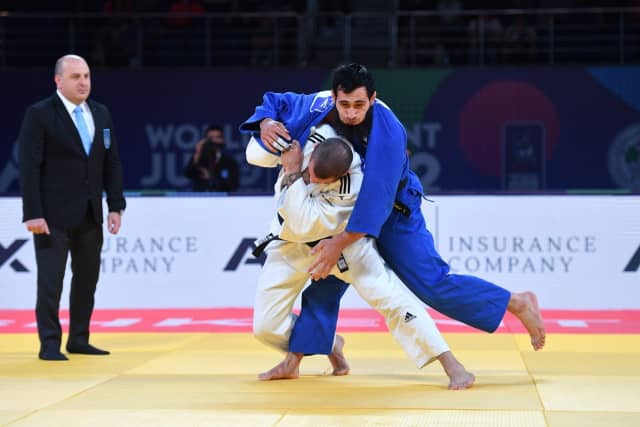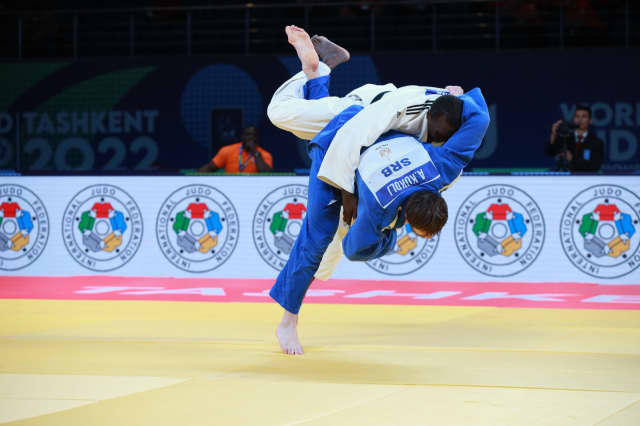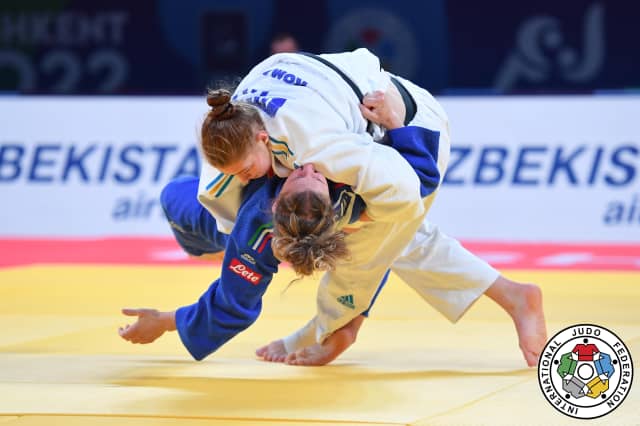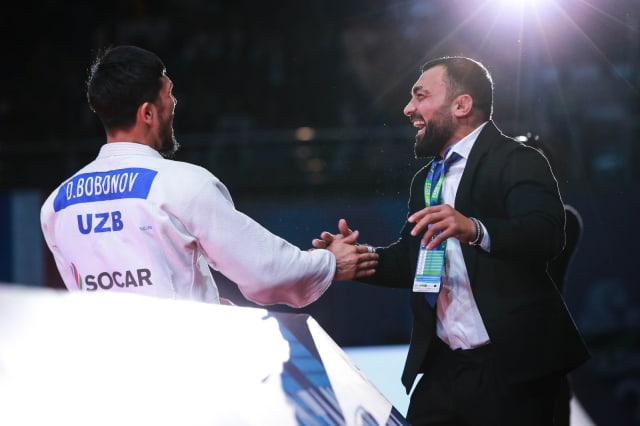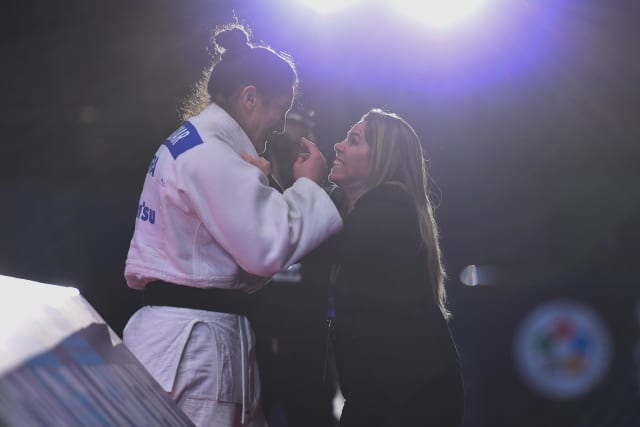Carlos Zegarra Presser offered his perspective on day 6 of the 2022 World Championships. “First of all, having watched from the first fight of the day, what I saw, in general, from both the men and women was that there was very little edge play; almost no shido had to be given for stepping out. The judo was fought fully inside the contest area. Usually the heavier weights are pushing a lot at the edge, searching for the shido but here, today, the best techniques were applied in the middle. We saw ippon, complete techniques and active judo, from the men all day and despite a slower start from the -78kg category, that too followed a largely positive line."
"I was really happy to see effective judo, not running around the mat, but taking good kumi-kata and attacking even if they couldn’t always quite finish. So, the attitude was correct and totally positive and proactive throughout. Normally people say that heavyweights are so strong but are without pace but today this was not the case. Almost all finished with ippon or waza-ari. With this approach there was very little in the way of disqualifications. This means it’s a good performance from the whole men’s category and mostly from the women too."
"These analyses and statistics are so important to reinforce ideas and also to assist with development. Among those already noted, I was surprised because we really had no ne-waza situations today. Even if a few tried, they were not effective. There were a couple of osae-komi moments but almost no shime-waza or kansetsu-waza. The women had better transition than the men but on the whole it seemed not to be the aim of the day.
Also, there were almost no injury situations, only a couple for treating minor blood issues. With all of these points we can see a clean, positive, safe judo with an expectation to win instead of protecting themselves from losses. So, when athletes are aiming for ippon we see no shido and no injury; it has been glaringly clear for me today.
In the women’s matches we saw more golden score contests than with the men. The men brought many good performances throughout the weight group. However, in the -78kg category those that came through to the final block were the exception, the truly outstanding judoka in the division and we saw the cream rise to the top."
"There is one completely different point in that I was surprised and really happy to see the new generation of coaches, not just today but all week. They are coming from world and Olympic champions and generally high level competitive careers. Scvortov (UAE), Valois-Fortier (CAN), Kelmendi (KOS), Iliadis (UZB), Menezes (BRA) and many more are a generation of coaches who are connected with their athletes. Some even have rituals that are shared with their athletes, such as Iliadis on day 5 blowing into his hands just as Bobonov did the same. There have been similar examples today.
The judo inside the mat you can feel but judo from outside can generally only be seen. These aspects offer different information for those working in their respective roles. Coaches can see big opportunities and the public can shout for things but when you are in the centre of the tatami you cannot hear, you can only feel. If you are not connected with your coach and team prior to the beginning of the match, you don’t have the complete range of needed information, you cannot both see and feel. Everyone needs to understand the relationship between athletes and their coaches. Coaches must check what athletes are feeling.
I can’t remember anything my coach was saying to me at the Olympic Games. I only heard my own breathing and heart. The public sometimes delivers a lot of criticism to the athletes but they cannot feel, only see. Everybody thinks they have the solution but the reality is never as simple as that.
So from this point I think a lot about those courageous judoka who come without a team. Imagine those with no coach, no physio, no-one with whom to connect at their most intense and vulnerable moments.”
Thanks to Carlos we can investigate our own thoughts and philosophies regarding the relationships in judo, the attitudes on the mat which provide the greatest chance of ippon and also of completing tournaments without injury. In the end this feels like a fully engaged debrief and one that should be heeded.

